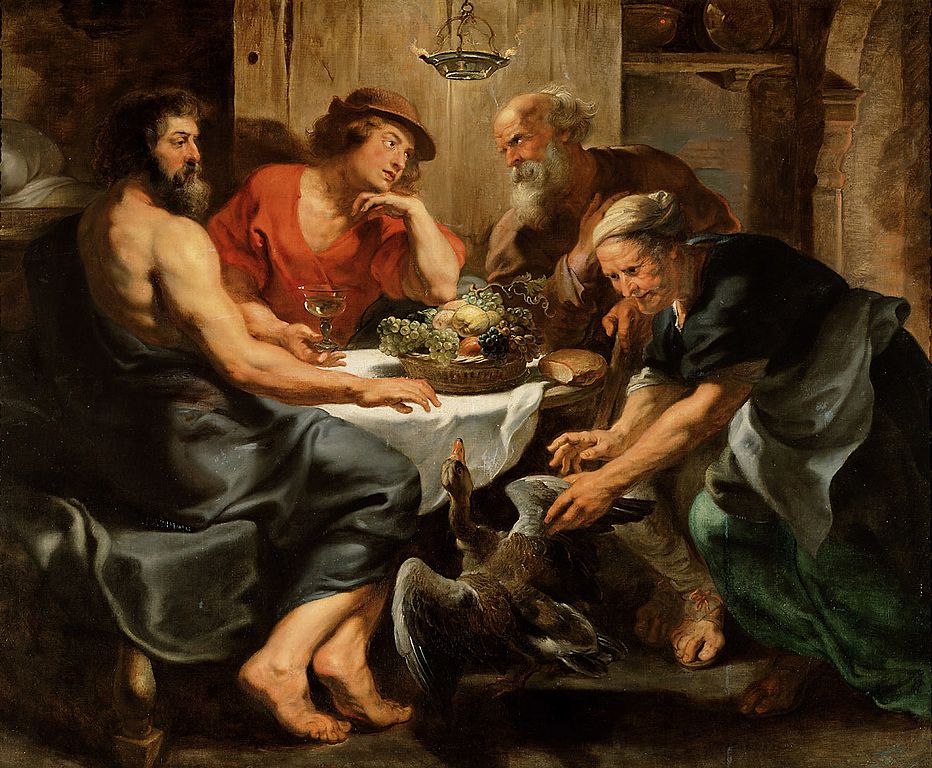Jupiter and Mercurius in the House of Philemon and Baucis (1630–33)by the workshop of Rubens: Zeus and Hermes, testing a village’s practice of hospitality, were received only by Baucis and Philemon, who were rewarded while their neighbors were punished.
Xenos in Greek (Ancient and Modern) is the stranger. Xenia is a unique ancient Greek concept of hospitality. It's the moral obligation of generosity and courtesy shown to those who are far from home and/or associates of the person bestowing guest-friendship. The rituals of hospitality created and expressed a reciprocal relationship between guest and host expressed in both material benefits as well as non-material ones.
The Greek god Zeus is sometimes called Zeus Xenios (from Xenia) in his role as a protector of travelers. He thus embodied the religious obligation to be hospitable to travelers. Theoxeny or theoxenia is a theme in Greek mythology in which humans demonstrate their virtue or piety by extending hospitality to a humble stranger (xenos), who turns out to be a disguised deity (theos) with the capacity to bestow rewards. These stories caution mortals that any guest should be treated as if potentially a disguised divinity and help establish the idea of xenia as a fundamental Ancient Greek custom that survived until our days.
The term theoxenia also covered entertaining among the gods themselves, a popular subject in classical art, which was revived at the Renaissance in works depicting a Feast of the Gods.






